Premium Only Content
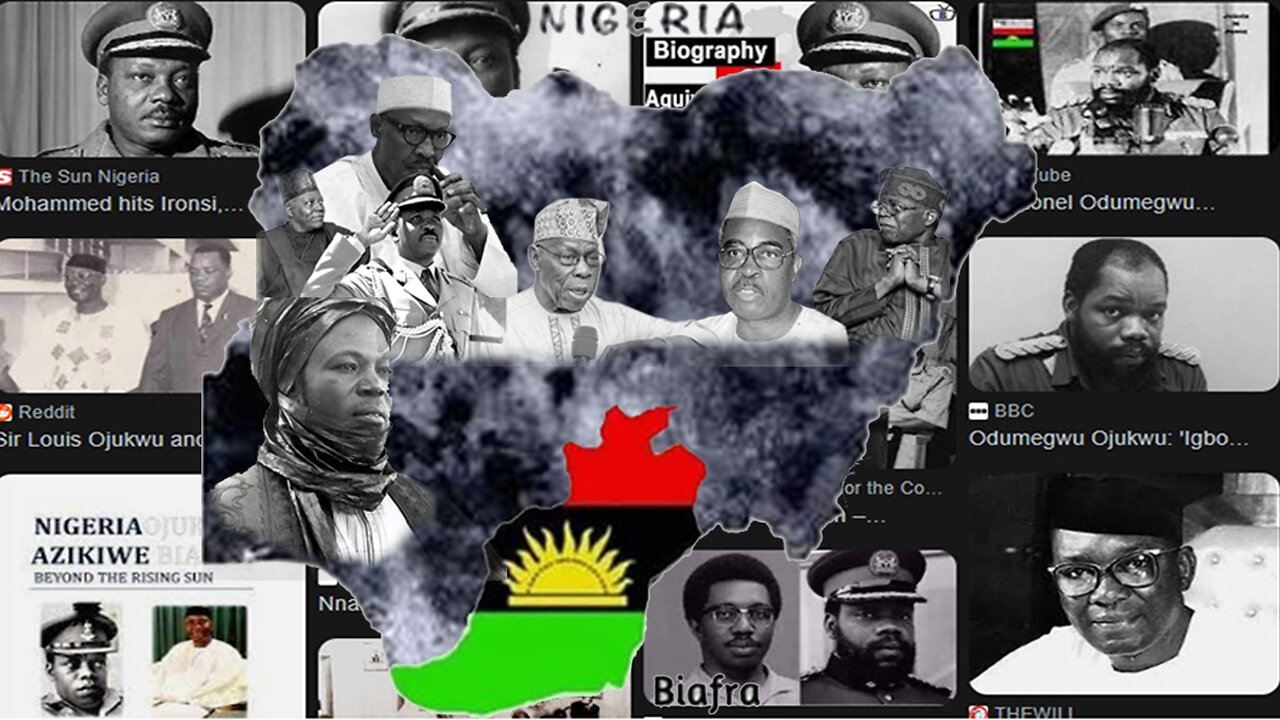
Nigeria and Biafra (1968)
Biafra officially the Republic of Biafra, was a partially recognised country in West Africa that declared independence from Nigeria and existed from 1967 until 1970. Its territory consisted of the former Eastern Region of Nigeria, predominantly inhabited by the Igbo ethnic group. Biafra was established on 30 May 1967 by Igbo military officer and Eastern Region governor Chukwuemeka Odumegwu Ojukwu under his presidency, following a series of ethnic tensions and military coups after Nigerian independence in 1960 that culminated in the 1966 anti-Igbo pogrom. The Nigerian military proceeded in an attempt to reclaim the territory of Biafra, resulting in the start of the Nigerian Civil War. Biafra was officially recognised by Gabon, Haiti, Ivory Coast, Tanzania, and Zambia while receiving de facto recognition and covert military support from France, Portugal, Israel, South Africa and Rhodesia. After nearly three years of war, during which around two million Biafran civilians died, president Ojukwu fled into exile in Ivory Coast as the Nigerian military approached the capital of Biafra. Philip Effiong became the second president of Biafra, and he oversaw the surrender of Biafran forces to Nigeria.
Igbo nationalism became a strong political and social force after the civil war. It has grown more militant since the 1990s, calling for the revival of Biafra as an entity.[13] Various Biafran secessionist groups have emerged, such as the Indigenous People of Biafra, the Movement for the Actualization of the Sovereign State of Biafra, and the Biafra Zionist Front.
History
Map of Africa (Abraham Ortelius, 1584)
Map of West Africa (Rigobert Bonne (Royal Cartographer of France) 1770)
Map of West Africa (1839); Biafra is shown in the region of "Lower Guinea"
The Kingdom of Biafara, map by John Speed (1676)
Early modern maps of Africa from the 15th to the 19th centuries, drawn from accounts written by explorers and travellers, show references to Biafar, Biafara, Biafra, and Biafares. According to the maps, the European travellers used the word Biafara to describe the region of today's West Cameroon, including an area around today's Equatorial Guinea. The German publisher Johann Heinrich Zedler, in his encyclopedia of 1731, published the exact geographical location of the capital of Biafara, namely alongside the river Rio dos Camaroes in today's Cameroon, underneath 6 degrees 10 min latitude. The words Biafara and Biafares also appear on maps from the 18th century in the area around Senegal and Gambia.
French map of the Gulf of Guinea from 1849
In his personal writings from his travels, a Rev. Charles W. Thomas defined the locations of islands in the Bight of Biafra as "between the parallels of longitude 5° and 9° East and latitude 4° North and 2° South"
Under independent Nigeria
In 1960, Nigeria became independent of the United Kingdom. As with many other new African states, the borders of the country did not reflect earlier ethnic, cultural, religious, or political boundaries. Thus, the northern region of the country has a Muslim majority, being primarily made up of territory of the indigenous Sokoto Caliphate. The southern population is predominantly Christian, being primarily made up of territory of the indigenous Yoruba and Igbo states in the west and east respectively. Following independence, Nigeria was demarcated primarily along ethnic lines: Hausa and Fulani majority in the north, Yoruba majority in the West, and Igbo majority in the East.
Ethnic tension had simmered in Nigeria during discussions of independence, but in the mid-twentieth century, ethnic and religious riots began to occur. In 1945 an ethnic riot flared up in Jos in which Hausa-Fulani people targeted Igbo people and left many dead and wounded. Police and Army units from Kaduna had to be brought in to restore order. A newspaper article describes the event:
At Jos in 1945, a sudden and savage attack by Northerners took the Easterners completely by surprise, and before the situation could be brought under control, the bodies of Eastern women, men, and children littered the streets and their property worth thousands of pounds reduced to shambles.
Three hundred Igbo people were murdered in the Jos riots. In 1953 a similar riot occurred in Kano. A decade later in 1964 and during the Western political crisis, the Western Region was divided as Ladoke Akintola clashed with Obafemi Awolowo. Widespread reports of fraud tarnished the election's legitimacy. Westerners especially resented the political domination of the Northern People's Congress, many of whose candidates ran unopposed in the election. Violence spread throughout the country, and some began to flee the North and West, some to Dahomey. The apparent domination of the political system by the North, and the chaos breaking out across the country, motivated elements within the military to consider decisive action. The federal government, dominated by Northern Nigeria, allowed the crisis to unfold with the intention of declaring a state of emergency and placing the Western Region under martial law. This administration of the Nigerian federal government was widely perceived to be corrupt. In January 1966, the situation reached a breaking point. A military coup occurred during which a mixed but predominantly Igbo group of army officers assassinated 30 political leaders, including Nigeria's Prime Minister, Sir Abubakar Tafawa Balewa, and the Northern premier, Sir Ahmadu Bello. The four most senior officers of Northern origin were also killed. Nnamdi Azikiwe, the President, of Igbo extraction, and the favoured Western Region politician Obafemi Awolowo were not killed. The commander of the army, General Aguiyi Ironsi seized power to maintain order.
Three hundred Igbo people were murdered in the Jos riots. In 1953 a similar riot occurred in Kano. A decade later in 1964 and during the Western political crisis, the Western Region was divided as Ladoke Akintola clashed with Obafemi Awolowo. Widespread reports of fraud tarnished the election's legitimacy. Westerners especially resented the political domination of the Northern People's Congress, many of whose candidates ran unopposed in the election. Violence spread throughout the country, and some began to flee the North and West, some to Dahomey. The apparent domination of the political system by the North, and the chaos breaking out across the country, motivated elements within the military to consider decisive action. The federal government, dominated by Northern Nigeria, allowed the crisis to unfold with the intention of declaring a state of emergency and placing the Western Region under martial law. This administration of the Nigerian federal government was widely perceived to be corrupt. In January 1966, the situation reached a breaking point. A military coup occurred during which a mixed but predominantly Igbo group of army officers assassinated 30 political leaders, including Nigeria's Prime Minister, Sir Abubakar Tafawa Balewa, and the Northern premier, Sir Ahmadu Bello. The four most senior officers of Northern origin were also killed. Nnamdi Azikiwe, the President, of Igbo extraction, and the favoured Western Region politician Obafemi Awolowo were not killed. The commander of the army, General Aguiyi Ironsi seized power to maintain order.
In July 1966, northern officers and army units staged a countercoup, killing General Aguiyi Ironsi and several southern officers. The predominantly Muslim officers named a General from a small ethnic group (the Angas) in central Nigeria, General Yakubu "Jack" Gowon, as the head of the Federal Military Government (FMG). The two coups deepened Nigeria's ethnic tensions. In September 1966, approximately 30,000 Igbo civilians were killed in the north, and some Northerners were killed in backlashes in eastern cities.[28]
In January 1967, the military leaders Yakubu "Jack" Gowon, Chukwuemeka Ojukwu and senior police officials of each region met in Aburi, Ghana and agreed on a less centralised union of regions. The Northerners were at odds with this agreement that was known as the Aburi Accords; Obafemi Awolowo, the leader of the Western Region warned that if the Eastern Region seceded, the Western Region would also, which persuaded the northerners.[28]
Now, therefore, I, Lieutenant-Colonel Chukwuemeka Odumegwu Ojukwu, Military Governor of Eastern Nigeria, by virtue of the authority, and pursuant to the principles, recited above, do hereby solemnly proclaim that the territory and region known as and called Eastern Nigeria together with her continental shelf and territorial waters shall henceforth be an independent sovereign state of the name and title of "The Republic of Biafra".
Chukwuemeka Odumegwu Ojukwu[29]
After returning to Nigeria, the federal government reneged on the agreement and unilaterally declared the creation of several new states including some that gerrymandered the Igbos in Biafra.
Nigerian civil war
Main article: Nigerian Civil War
On 26 May, Ojukwu decreed to secede from Nigeria after consultations with community leaders from across the Eastern Region. Four days later, Ojukwu unilaterally declared the independence of the Republic of Biafra, citing the Igbos killed in the post-coup violence as reasons for the declaration of independence.[20][28][30] It is believed this was one of the major factors that sparked the war.[31] The large amount of oil in the region also created conflict, as oil was already becoming a major component of the Nigerian economy.[32] Biafra was ill-equipped for war, with fewer army personnel and less equipment than the Nigerian military, but had advantages over the Nigerian state as they were fighting in their homeland and had the support of most Biafrans.[33]
The FMG attacked Biafra on 6 July 1967. Nigeria's initial efforts were unsuccessful; the Biafrans successfully launched their own offensive, and expansion efforts; occupying areas in the mid-Western Region in August 1967. This led to the creation of the Republic of Benin, a short lived puppet state. However, with the support of British, American and Soviet governments, Nigeria turned the tide of the war. By October 1967, the FMG had regained the land after intense fighting.[28][34] In September 1968, the federal army planned what Gowon described as the "final offensive". Initially, the final offensive was neutralised by Biafran troops. In the latter stages, a Southern FMG offensive managed to break through the fierce resistance.[28]
Due to the proliferation of television and international news organizations, the war found a global audience. 1968 saw the images of malnourished and starving Biafran children reach the mass media of Western countries and led to non-governmental organisations become involved to provide humanitarian aid, leading to the Biafran airlift.[35]
After two-and-a-half years of war, during which almost two million Biafran civilians (three-quarters of them small children) died from starvation caused by the total blockade of the region by the Nigerian government,[36][37] Biafran forces under Nigeria's motto of "No-victor, No-vanquished" surrendered to the Nigerian Federal Military Government (FMG). The surrender was facilitated by the Biafran Vice President and Chief of General Staff, Major General Philip Effiong, who assumed leadership of the Republic of Biafra after the first President, Colonel Chukwuemeka Odumegwu Ojukwu, fled to Ivory Coast.[38] After the surrender of Biafrans, some Igbos who had fled the conflict returned to their properties but were unable to claim them back from new occupants. This became law in the Abandoned Properties Act (28 September 1979).[39] It was purported that at the start of the civil war, Igbos withdrew their funds from Nigerian banks and converted it to the Biafran currency. After the war, bank accounts owned by Biafrans were seized and a Nigerian panel resolved to give every Igbo person an account with only 20 pounds.[40] Federal projects in Biafra were also greatly reduced compared to other parts of Nigeria.[22] In an Intersociety study it was found that Nigerian security forces also extorted approximately $100 million per year from illegal roadblocks and other methods from Igboland – a cultural sub-region of Biafra in what is now southern Nigeria, causing the Igbo citizenry to trust the Nigerian security forces even less than before.
-
 0:15
0:15
Biafra Battle Cry
1 month agoPoor Knowledge of the law is k!lling Nigeria - Mazi Nnamdi Kanu
562 -
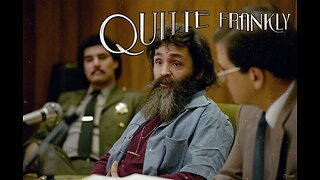 LIVE
LIVE
Quite Frankly
5 hours ago"Behind Bars w/ Darren Monahan: Guarding Charles Manson" 5/1/25
464 watching -
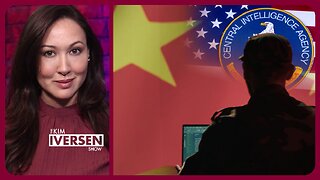 1:18:03
1:18:03
Kim Iversen
3 hours agoCIA Launches YouTube Video Ads to Recruit Chinese Spies | The Birthrate Crash: Why Women Aren’t Having Kids
43.4K22 -
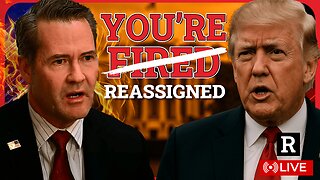 1:35:12
1:35:12
Redacted News
3 hours agoHUGE! TRUMP FIRES NEO-CON MIKE WALTZ, PUTIN PRAISES TRUMP FOR MINERALS DEAL | Redacted News
85.4K64 -
 1:32:39
1:32:39
Dr. Drew
6 hours agoDana Loesch: Insane Texas Law Threatens To JAIL Political Meme Posters & Criminalize Parody (Up To A YEAR In Jail) w/ David Zweig – Ask Dr. Drew
15.9K5 -
 53:13
53:13
Kimberly Guilfoyle
5 hours agoIt's a Bad Day To Be a Bad Guy, More Wins for Kash's FBI | Ep218
37.4K9 -
 1:34:38
1:34:38
vivafrei
8 hours agoCanadian Election HANGOVER! You Got Fooled, Folks! Kamala Continues Cackling! Stephen Miller ROCKS!
85.5K79 -
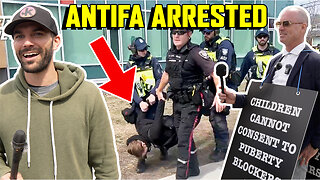 22:04
22:04
James Klüg
3 hours agoJames Klug and Billboard Chris Take On Antifa
29.7K7 -
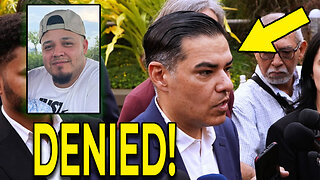 16:58
16:58
T-SPLY
5 hours agoDems’ Bad News: El Salvador Rejects Abrego, Democrats Fume!
20.4K23 -
 2:10:52
2:10:52
The Quartering
7 hours agoKarmelo Anthony SPENDING SPREE, Kamala Harris Hammered Drunk, Catturd Blasts Rumble & Superman Woke
158K53